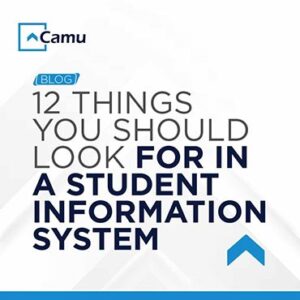
Maintaining the record of books in a library is a task that requires a lot of attention and carefulness. Librarians need to feed the names of the hundreds of books present in the library on a register. They also need to maintain the stock based on the books borrowed each day. This complex task has now been simplified with the library management system.
Library Management System Software is a platform that helps in maintaining the record of new and borrowed books. Librarians can refer to the software and find out the current status of a book. This reduces the time and labour involved in maintaining a library.
Uses of the Library Management System
The purpose of using a management system for libraries is solely to reduce the amount of human work involved. With most of the tasks getting automated, librarians no longer need to put in hours just to tally the stock. There are many other ways that the system can assist with conducting online classes.
- The data of borrowers can be stored and maintained easily and referred to without much effort.
- The management system can reduce the need for human resources as a single person can manage the entire library with the reliability of the technology.
- Readers can borrow books online by just using their details to sign in.
- The process of searching books becomes easier for the readers as they can look into the online stock and generate the request to borrow.
- The software can be used in various organizations such as schools, colleges, reference libraries, national libraries, and public libraries.
Components of Library Management Software
There are certain modules that the management software developers can offer you, which can help you to determine the purpose of the library management for your institute.
Book Purchase – This allows librarians to receive price quotes from different vendors to purchase books. Once they filter out the most suitable price for a deal, librarians can instantly create a database of the purchased books.
Purchase Management – Management software can make the process of generating invoices of the purchased books and indexing them very smooth. This further helps in maintaining budget and identifying over expenses.
Patron Management – This enables librarians to create and maintain the database of readers without any complexity. The librarian can track books and their due dates of submission. They can also smoothly execute the process of lending, returning and renewal of books.
MIS Reports – Management Information System (MIS) helps in managing huge databases easily without error. This is an important requirement for the effective management of libraries and the management software can help institutes to generate MIS reports with just a few clicks.
Online Public Access Catalogue – OPAC serves as an online store where institutes can display their stock of books and journals for the easy access of readers. You can use the management software to ease the process of borrowing books for the users as well as the administrators by designing an easy-to-use OPAC.
M-OPAC – This is an advanced version of the OPAC that users can access anywhere with their smartphones.
Functions of Library Management Software
According to Henry Fayol, there are 5 important functions of management systems like the ones used for managing libraries.
a) Planning – This is the first and crucial component of the library management system. Any management system must state clearly its goals and objectives that would help the users to understand their applicability to their own business. Educational institutes can effectively use management system software for their online classes when they know their uses. Based on this, future strategies will be made and executed.
b) Commanding – The software can assist with the selection of resources in the library. It can be used to assess job roles and select employees who are best suited to step in the role. In this respect, it can provide library managers with an accurate evaluation of the performance of the employees. The software can help in conducting appraisals. In short, it can contribute to the overall growth of the organization.
c) Organizing – The next important function of the library management system is departmentalization and decentralization. This simply means the tasks of the library would be divided based on departments. After this, the software would bring all tasks on one platform so that the entire administration process gets centralized.
d) Coordinating – An essential task for managers is coordinating between the various departments and people to bring them on one platform. The same task is done by the management software. You can use library management software to facilitate communication between departments. This, in turn, can help with keeping the workforce motivated to work together and achieve the company goals.
e) Controlling – The software can assist with effective control and management of the workflow. As a lot many operations are automated, it becomes easier to apply control techniques that can contribute to reducing errors.
Advantages Of Library Management System
There are several benefits of using online learning platforms.
- The time taken by librarians to manually maintain the record of books and conduct other related tasks is reduced greatly. Librarians can enter new resources and maintain the existing database with ease on the digital campus. They can add new users or remove the old record of students or books without spending time manually verifying all information.
- As human intervention becomes limited with the software, the chances of error reduce in maintaining stock and conducting monetary transactions. If any data gets deleted mistakenly, the recovery is much faster than manual operation.
- The software can transform the library into a smart platform where books can be arranged based on the author and subject, which would ease the process of searching books by the readers.
- A smart library would help students to rely on the authenticity of the information available in the library. They would be able to access the library on hand-held devices, thus saving their time to visit the library and borrow books. This would further help in increasing the number of users of the library.
- Librarians can address the queries of readers more effectively with the management system. They can check the availability of a book on the online platform and provide accurate information to the users. They can also offer assistance to readers in finding books of their choice by simply searching the database with keywords.
- The library management system is a cost-effective way of managing libraries. As the number of resources needed to conduct the administrative work decreases, the cost involved in hiring the resources also lessens. Purchasing books and indexing and cataloguing them also requires the involvement of many people. This task can also become easier with the management system.
Features of an Effective Library Management Software
Different software developing companies used different LMS software for creating a good library management system. You need to pick the most viable option for your institute. There are some important considerations that all institutes need to make before settling for management software.
- Connected to Web – It is crucial that the software you select for managing your library is connected to the web. There are various options for hosting a library management system. But you should always prefer web-based software as it offers access to a huge number of books and journals.
- Cost-Effective – The cost of developing the management system would depend on the features it is loaded with. It is important that the software meets the basic requirements of managing a library with automation without charging a high price. All the important features should be a part of the software so that the institute is not charged with additional expenses apart from customization.
- Technical Assistance – As not many staff would be accustomed to using such an automated website, the software developer should help the librarian and other people involved in the management of the library to understand the navigation of the platform. The developer should also be available to resolve any technical issues that may arise after the library staffs start using the software.
- Easy to Access – The software should allow the administration department to access the library from any location and any device. The student database must also be available on a single platform that is accessible for all administrators.
- User-Friendly Interface – The software must have an easy-to-use interface so that users who are not tech-savvy can use the platform without any issue. The software must have options to filter books based on multiple search criteria such as title, genre, or the name of the author. Users should also be able to find important notifications on the platform related to the library such as emergency closing of the operation
Features of Library Management System of CAMU
Camu offers the best digital campus that can address all aspects of the education sector as effectively as traditional offline learning does. It provides a library management system that can send email notifications to students for returning books, can generate reading lists, can provide reading suggestions, and can assist administration with the book acquisition process. Its LMS software is built to provide a world-class learning experience to students.
So, to manage libraries in the most convenient way, institutes must opt for management system software. This is a smart and cost-effective choice for providing online learning platforms that improve the reading experience of book seekers.







